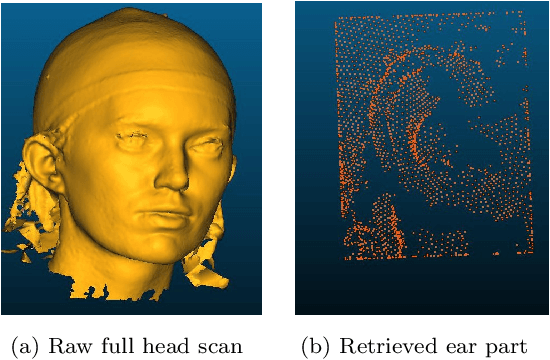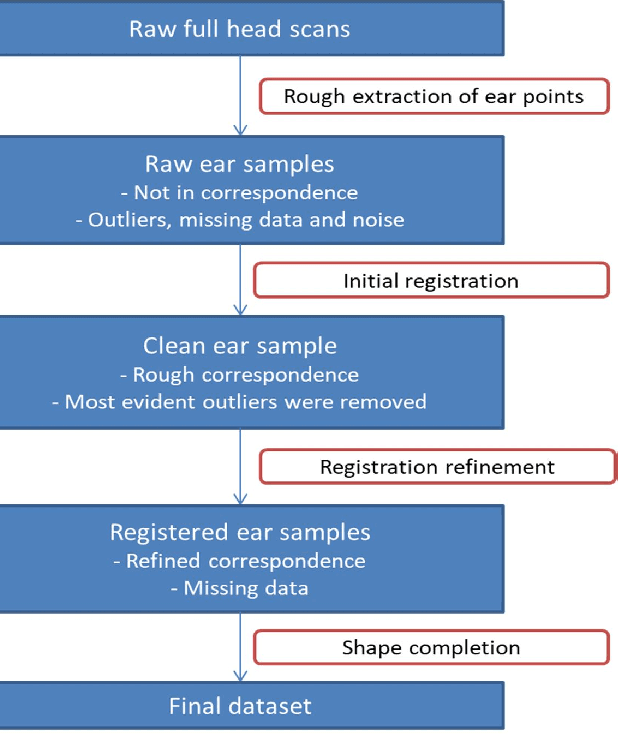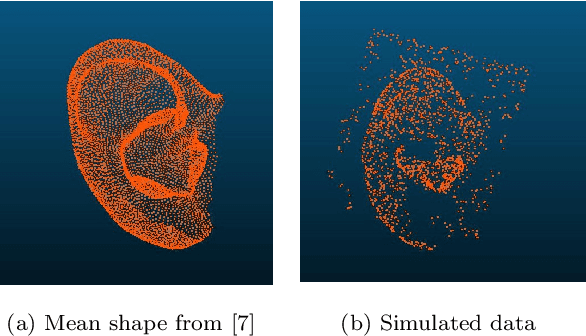RANSIP : From noisy point clouds to complete ear models, unsupervised
Paper and Code
Aug 22, 2020



Ears are a particularly difficult region of the human face to model, not only due to the non-rigid deformations existing between shapes but also to the challenges in processing the retrieved data. The first step towards obtaining a good model is to have complete scans in correspondence, but these usually present a higher amount of occlusions, noise and outliers when compared to most face regions, thus requiring a specific procedure. Therefore, we propose a complete pipeline taking as input unordered 3D point clouds with the aforementioned problems, and producing as output a dataset in correspondence, with completion of the missing data. We provide a comparison of several state-of-the-art registration methods and propose a new approach for one of the steps of the pipeline, with better performance for our data.
 Add to Chrome
Add to Chrome Add to Firefox
Add to Firefox Add to Edge
Add to Edge